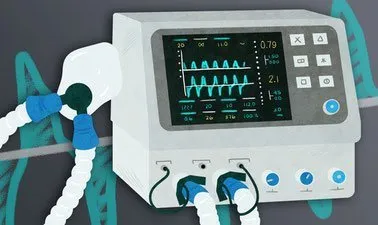
COVID-19 vaccine-specific resources 
Gain an introduction to COVID-19 vaccine-specific resources ▼
ADVERTISEMENT
Course Feature
![]() Cost:
Cost:
Free
![]() Provider:
Provider:
OpenWHO
![]() Certificate:
Certificate:
Free Certification
![]() Language:
Language:
English
![]() Start Date:
Start Date:
On-Demand
Course Overview
❗The content presented here is sourced directly from OpenWHO platform. For comprehensive course details, including enrollment information, simply click on the 'Go to class' link on our website.
Updated in [May 19th, 2023]
This course provides an overview of the COVID-19 vaccine-specific resources available to health workers involved in deployment and implementation of the vaccine. It includes short instructional videos, vaccine explainers, job aids, topic briefings, and downloadable presentations. It builds on the COVID-19 vaccination training for health workers and the Orientation to National Deployment and Vaccination Planning for COVID-19. Additionally, further videos and resources concerning other vaccines will be added as they receive emergency use listing (EUL) or prequalification. Photo credits are provided by WHO/Blink Media - Chiara Luxardo.
[Applications]
The application of this course is suggested to be used by health workers involved in the deployment and implementation of COVID-19 vaccination. It provides key information about COVID-19 vaccines through short instructional videos, vaccine explainers, job aids, topic briefings, and downloadable presentations. Additionally, it is suggested that further videos and resources concerning other vaccines be added as they receive emergency use listing (EUL) or prequalification.
[Career Paths]
1. Vaccine Administrator: Vaccine administrators are responsible for administering vaccines to individuals in accordance with established protocols. They must be knowledgeable about the different types of vaccines, their administration techniques, and the potential side effects. Vaccine administrators must also be able to provide accurate information to patients about the vaccine and its benefits. As the demand for COVID-19 vaccines increases, the need for vaccine administrators is expected to grow.
2. Vaccine Educator: Vaccine educators are responsible for educating the public about the importance of vaccines and the potential risks associated with them. They must be knowledgeable about the different types of vaccines, their benefits, and the potential side effects. Vaccine educators must also be able to provide accurate information to patients about the vaccine and its benefits. As the demand for COVID-19 vaccines increases, the need for vaccine educators is expected to grow.
3. Vaccine Researcher: Vaccine researchers are responsible for researching and developing new vaccines. They must be knowledgeable about the different types of vaccines, their benefits, and the potential side effects. Vaccine researchers must also be able to provide accurate information to patients about the vaccine and its benefits. As the demand for COVID-19 vaccines increases, the need for vaccine researchers is expected to grow.
4. Vaccine Data Analyst: Vaccine data analysts are responsible for analyzing data related to vaccine efficacy, safety, and effectiveness. They must be knowledgeable about the different types of vaccines, their benefits, and the potential side effects. Vaccine data analysts must also be able to provide accurate information to patients about the vaccine and its benefits. As the demand for COVID-19 vaccines increases, the need for vaccine data analysts is expected to grow.
[Education Paths]
1. Bachelor of Science in Nursing: This degree path is designed to prepare students to become registered nurses. It provides a comprehensive education in the sciences, nursing theory, and clinical practice. Students learn how to assess, diagnose, and treat patients, as well as how to provide patient education and support. With the emergence of the COVID-19 pandemic, nurses have become increasingly important in the healthcare system, and this degree path is becoming more popular.
2. Master of Public Health: This degree path focuses on the health of populations and communities. It provides students with the knowledge and skills to assess, plan, implement, and evaluate public health programs. With the emergence of the COVID-19 pandemic, public health professionals have become increasingly important in the healthcare system, and this degree path is becoming more popular.
3. Doctor of Pharmacy: This degree path is designed to prepare students to become pharmacists. It provides a comprehensive education in the sciences, pharmaceutical sciences, and clinical practice. Students learn how to assess, diagnose, and treat patients, as well as how to provide patient education and support. With the emergence of the COVID-19 pandemic, pharmacists have become increasingly important in the healthcare system, and this degree path is becoming more popular.
4. Master of Science in Biostatistics: This degree path focuses on the application of statistical methods to the study of biological and medical data. It provides students with the knowledge and skills to analyze and interpret data, as well as to design and implement research studies. With the emergence of the COVID-19 pandemic, biostatisticians have become increasingly important in the healthcare system, and this degree path is becoming more popular.
Course Provider

Provider OpenWHO's Stats at AZClass
Discussion and Reviews
0.0 (Based on 0 reviews)
Explore Similar Online Courses

CompTIA Network+ Course Certification

Cloud Computing Lab Programs

Python for Informatics: Exploring Information

Social Network Analysis

Introduction to Systematic Review and Meta-Analysis

The Analytics Edge

DCO042 - Python For Informatics

Causal Diagrams: Draw Your Assumptions Before Your Conclusions

Whole genome sequencing of bacterial genomes - tools and applications

COVID-19 Contact Tracing

Mechanical Ventilation for COVID-19

COVID-19 in Slums & Informal Settlements: Guidelines & Responses
 Related Categories
Related Categories
 Popular Providers
Popular Providers
Quiz
 Submitted Sucessfully
Submitted Sucessfully
1. What is the purpose of this training?
2. What type of resources are provided in this training?
3. Who is the photo credit for this training?
4. What is the acronym for Emergency Use Listing?
Correct Answer: EUL


Start your review of COVID-19 vaccine-specific resources